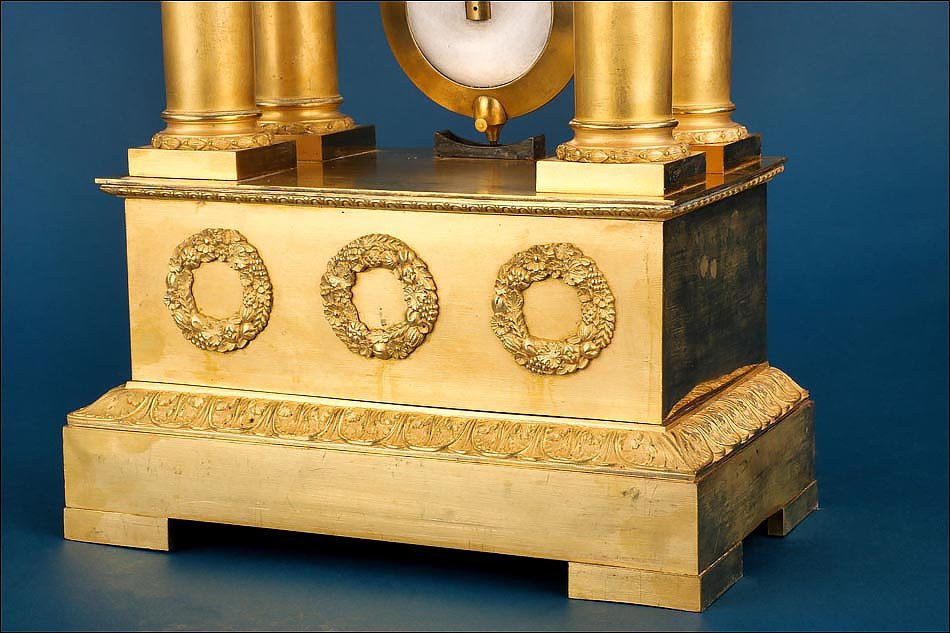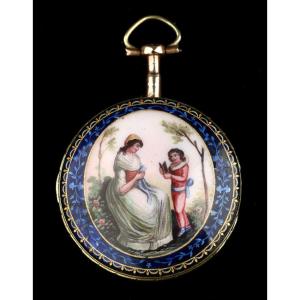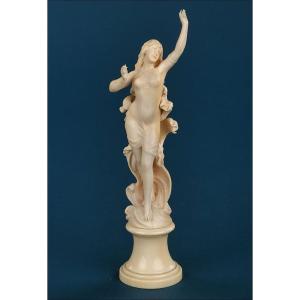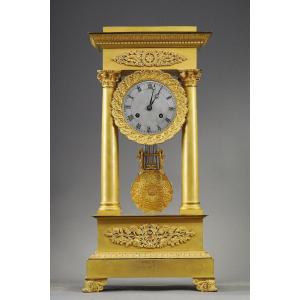The clock houses a precise 7-day Parisian winding movement, renowned for its durability and excellent performance. This mechanism includes a chime that marks the hours and half-hours, resonating with a smooth and distinctive melody on a bell. The clock face, adorned with Roman numerals and finely crafted metal hands, is clear and easy to read, standing out for its refinement.
The gilt bronze finish retains its luster and offers a beautiful patina that adds character to the piece. The base of the portico is finely decorated with floral and geometric motifs, enhancing the overall aesthetics of the piece and underscoring the craftsmanship of the era's artisans. While there are minimal signs of age in some areas, these only add to the clock's authenticity and appeal, without detracting from its overall beauty.
This portico clock not only excels in its impeccable functionality but also serves as a decorative object of great artistic value. It is a perfect addition to any antique collection or to decorate a space with a classic and sophisticated touch.
Dimensions: 59 cm (23.23 in) high, 27.5 cm (10.83 in) wide, and 15.3 cm (6 in) deep.
History of Portico Clocks
Portico clocks became a symbol of status and good taste in Europe, especially in France, during the 18th and 19th centuries. Characterized by their structure reminiscent of classical temples, these clocks were both functional and decorative. The Parisian mechanism was highly valued for its precision and durability, while the exterior design often featured high-quality decorative details, reflecting the skill of the era's artisans. These clocks were commonly used in the most distinguished homes, providing not only the function of timekeeping but also an element of beauty and sophistication to interior spaces.


















































 Le Magazine de PROANTIC
Le Magazine de PROANTIC TRÉSORS Magazine
TRÉSORS Magazine Rivista Artiquariato
Rivista Artiquariato